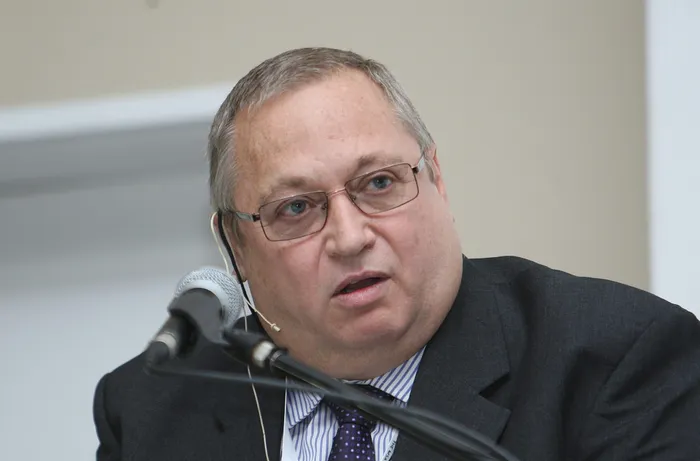Sibanye-Stillwater files antidumping petition in America against Russian palladium imports

Sibanye-Stillwater CEO Neal Froneman.
Image: File
Multinational mining and metals processing group Sibanye-Stillwater, which is listed in South Africa and America, has filed an antidumping petition with the US Department of Commerce and the US International Trade Commission (ITC) on imports of unwrought palladium from Russia.
Sibanye-Stillwater, together with the representative union at its US PGM operations in Montana, the United Steel, Paper and Forestry, Rubber, Manufacturing, Energy, Allied Industrial and Service Workers International Union (United Steelworkers Union), said on Thursday they have initiated legislative processes intended to ensure the sustainability of Sibanye-Stillwater's US PGM operations and protect the long-term viability of domestic United States platinum group metals (PGM) supply.
Neal Froneman, the CEO of Sibanye-Stillwater, said, “We believe that Russian palladium imports are being sold below market prices due to various factors, beginning primarily after the Russian invasion of Ukraine in 2022. Companies and industries in Western economies are generally held to higher standards and are subject to more stringent requirements than peers in less regulated environments and are consequently at a material competitive disadvantage. Obtaining relief from dumped and subsidised Russian imports will give Sibanye-Stillwater, its employees, and the entire US PGM industry, an opportunity to compete on a more level playing field."
PGMs are classified as critical metals in the US. Sibanye-Stillwater's US PGM operations in Montana are the only source of primary PGM production in the US, with the balance of domestic PGM supply derived from secondary (recycled) sources, of which Sibanye-Stillwater’s recycling operations are one of the largest secondary suppliers.
"The significant decline in PGM prices since 2022 has impacted profitability and threatened the financial viability of the US PGM operations, necessitating restructuring of these operations, which negatively impacted employees and other stakeholders in the US region. Simultaneously, Russian palladium imports into the US have increased in volume over the same period and, based on an analysis of public trade statistics, are being sold at a discount to market-related palladium prices," Sibanye-Stillwater said.
In the US, antidumping and countervailing duty laws are intended to provide relief for domestic industries by addressing market distortions caused by unfair trade practices.
Consequently, on July 30, 2025, Sibanye-Stillwater and the United Steelworkers, supported by 70% of US palladium industry participants, including domestic palladium mining and recycling companies, filed antidumping and countervailing duty petitions with the US Department of Commerce and the ITC on imports of unwrought palladium from Russia.
Unwrought palladium refers to palladium in its raw, unprocessed form—typically as bars, ingots, powder, or wire—before it has been manufactured into finished products or components.
Sibanye-Stillwater said the parties are petitioning for duties to be imposed on Russian palladium imports to promote "a fair and competitive market", and support the long-term viability of US PGM supply. If successful, imports of unwrought palladium from Russia to the US will be subject to duties to offset the levels of dumping and subsidies identified.
Once filed, Commerce will initiate a decision whether to investigate or note within 21 days, the ITC will make a preliminary determination within 45 days, and then Commerce may issue preliminary countervailing duty tariffs within five months and preliminary antidumping tariffs within seven months. A final determination should occur within 13 months of filing the case.
BUSINESS REPORT